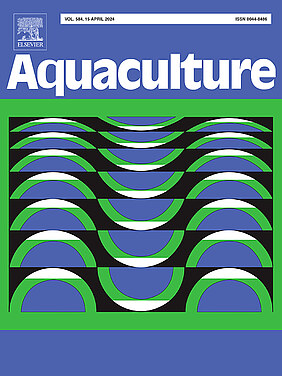Highlights
- Krill and tuna hydrolysates were tested in diets for red sea bream and olive flounder.
- Krill hydrolysate significantly improved growth and feed utilization in both species.
- Hydrolysate supplementation improved dietary protein digestibility for the two species.
- Significant enhancements in both fish immune responses were obtained by hydrolysates.
- Tuna hydrolysate augmented red sea bream resistance against Edwardsiella tarda.
Abstract
Two feeding trials were conducted to investigate the effects of dietary supplementation of krill hydrolysate (KH) and tuna hydrolysate (TH) on growth performance, feed utilization, nutrient digestibility, innate immunity and disease resistance of juvenile red sea bream (Exp Ι) and olive flounder (Exp II). In both experiments a basal fish meal-based diet was regarded as a control and two other diets were prepared by top-coating 2% of KH or TH (designated as Con, KH and TH, respectively). Triplicate groups of red sea bream (29.0 ± 0.1 g) and olive flounder (24.5 ± 0.3 g) were fed one of the test diets for 12 and 9 weeks, respectively. In both experiments growth performance and feed utilization of the fish were significantly improved by dietary supplementation of KH compared to those of fish fed the control diet. Significantly higher digestibility of dietary protein was found in both species fed KH and TH diets, while higher dry matter digestibility was only found in flounder fed the KH and TH diets. No significant changes were observed in fish hematological parameters and whole-body composition. Red sea bream had significantly higher NBT activity by TH and higher lysozyme activity by both TH and KH diets compared to Con diet. In olive flounder, the KH diet led to significantly higher NBT and superoxide dismutase activities, and the TH diet resulted in a significantly higher lysozyme activity than Con diet. At the end of the challenge test, red sea bream fed the TH diet showed higher disease resistance against Edwardsiella tarda. Results of this study indicated that supplementation of 2% KH in diets for red sea bream and olive flounder can enhance growth performances and feed efficiency, and that non-specific immune response can be positively affected by both KH and TH.

